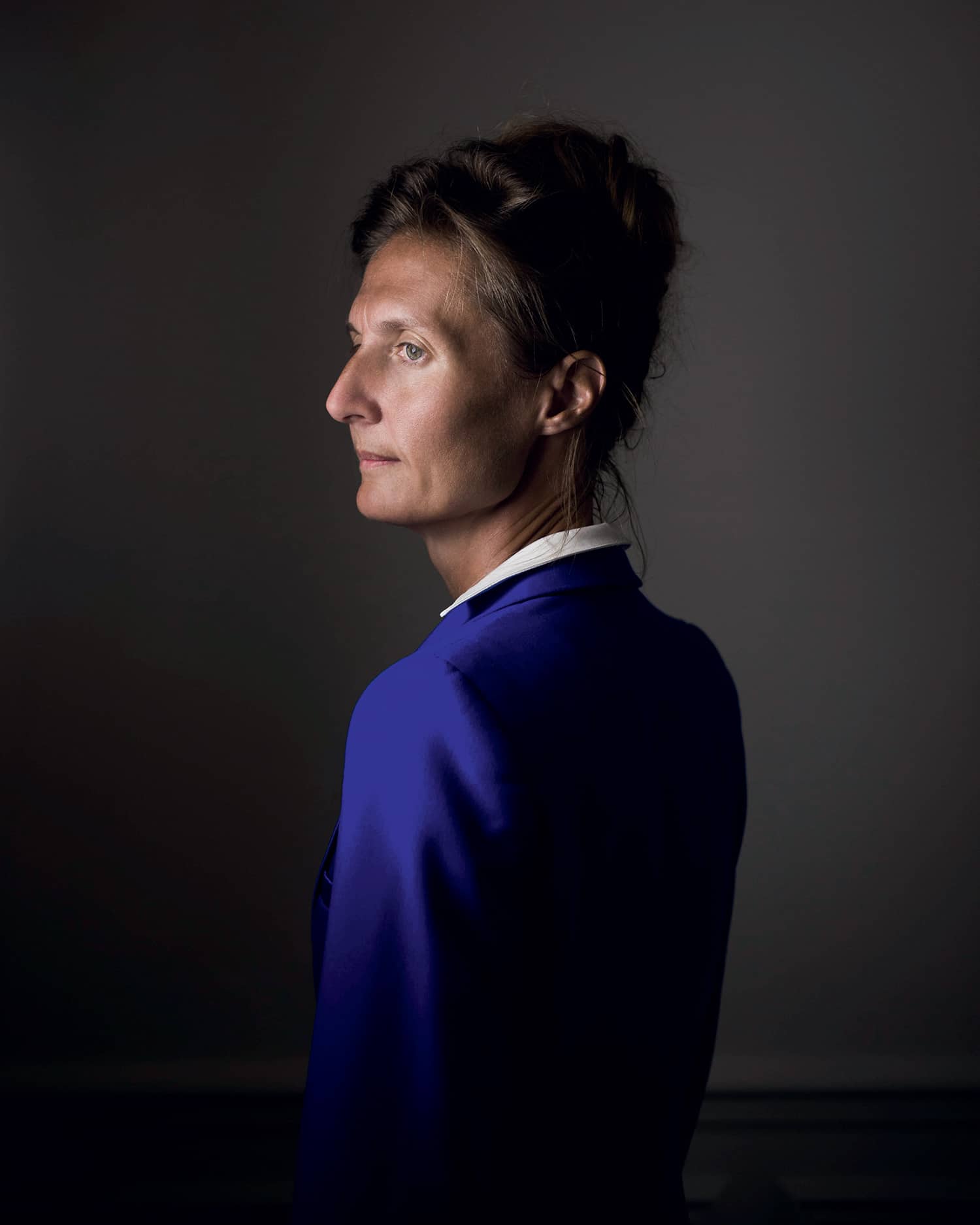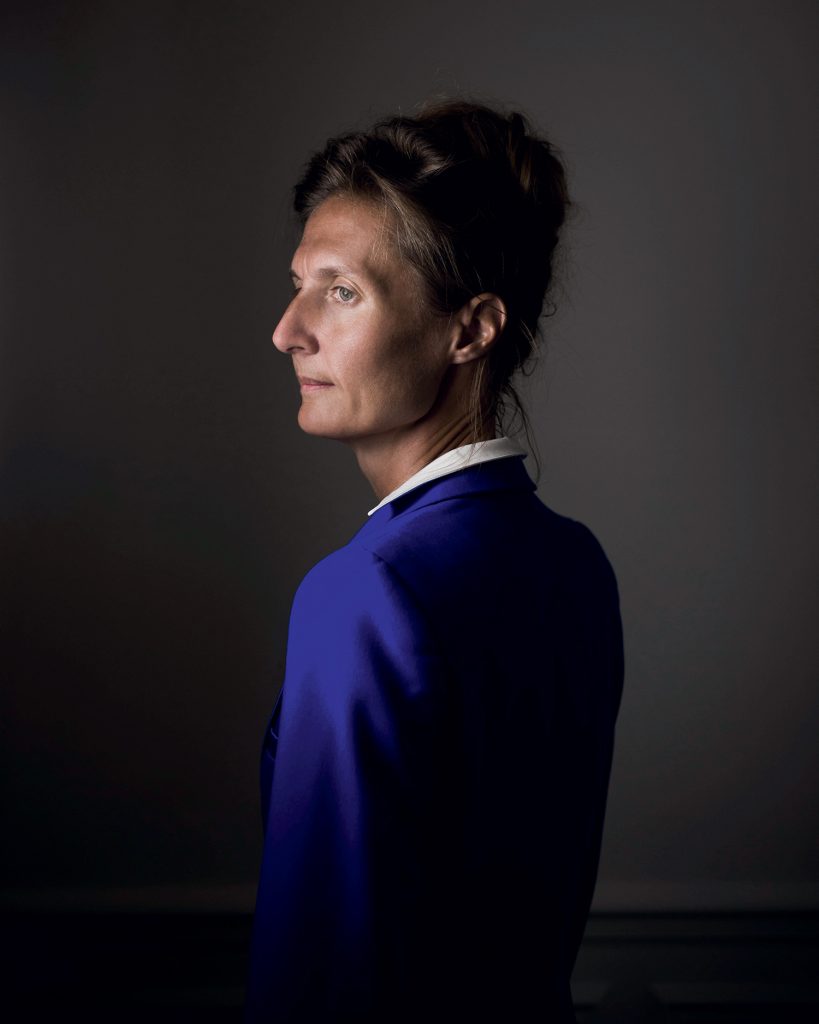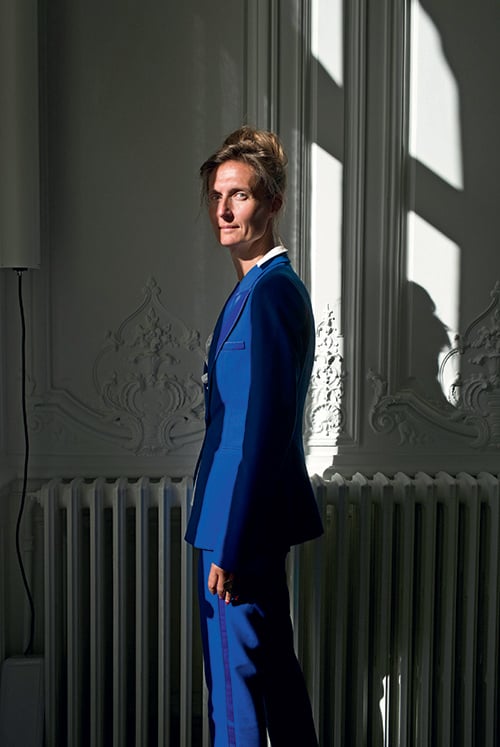Anne-Laure Kiechel (H.99): The banker on friendly terms with countries

The economist Anne-Laure Kiechel (H.99), formerly an executive with banks Lehman Brothers and Rothschild, founded her own consultancy to advise governments. These days, debt is her personal crusade.

1975 – Born in the Haut-Rhin region. Spent her childhood in France, Switzerland, Germany and the United States.
1999 – Began her career at Lehman Brothers, in New York.
2009 – Joined the bank Rothschild & Co.
2013 – Managing partner at Rothschild & Co., where she developed sovereign advisory services
2018 – Vanity Fair ranked her 19th among “the most influential French people in the world”
2019 – Launched her own consultancy, Global Sovereign Advisory
When she talks about it, it’s with emotion and a bit of nostalgia. In 2016, when Greece was struggling with unprecedented national debt, Anne-Laure Kiechel was asked to advice the country’s Prime Minister, Alexis Tsipras. “Every day was intense; the nights, too. We had to regain some credibility for the country, which had been losing it for eight years, and prepare it for a market return. Today, when I walk down a street in Athens and hear people praise what we accomplished, I tell myself that all our efforts were not in vain.” The woman whom the Greek daily Phileleftheros dubbed “she who whispers in Tsipras’s ear” now advises other leaders, other countries. The emblematic head of the Syriza party lost in the legislative elections. In July 2019, this former militant Communist who had revived his country by imposing courageous austerity measures lost his post to the conservative Kyriakos Mitsotakis. In 2020, the world no longer has its eyes on Greece; the global economy is in turmoil for other reasons. But when we ask her if she would accept another such crisis-management mission, it’s obvious that she would do so in a heartbeat.
HEC, a bit by accident
Anne-Laure Kiechel likes a challenge. As a child, she took an interest in music and spent six hours a day practicing the piano, until she realized that she would never become a concert pianist. (She still loves opera, though). As a teenager, she lived in Switzerland, France, the United States and Germany, and is trilingual as a result. An only child, she accompanied the many moves of her father, a protestant pharmacologist who devoted a decade of his life to humanitarian causes (including developing anti-malaria drugs). For a while she dreamed of emulating her hero and model, Dr. Schweitzer, but after attending a preparatory school at Louis-Le-Grand and completing a Masters in math, she followed a friend’s suggestion and took the HEC entrance exam. “I was vaguely interested in finance, but to tell the truth, I really had no idea what I was getting into!” This young student came to HEC at a pivotal moment, when the Community of European Management Schools and International Companies was setting up links between the school, multinationals and NGOs, and had just created an international diploma. She felt like a pioneer. She completed internships in Bavaria and London, and, back in France, she reveled in the finance classes given by Bruno Solnik (“a perfect balance between theory and application”).
“Using debt as an excuse, leaders have imposed austerity measures that have not always been justified.”
Ivory Coast, Greece, Senegal, Argentina…
In 1999, she began her career in New York in the debt department of Lehman Brothers. “Before everything fell apart in 2008 in that spectacular bankruptcy. It marked me for life: that sense of unfairness, the way some people behaved…” Rothschild & Co was more than a safe harbor. At the bank’s headquarters on Avenue de Messine in Paris, Anne-Laure Kiechel joined the corporate-advisory department and was named a managing partner at the end of 2013 (like Emmanuel Macron two years earlier). “I’ve always been deeply interested in public-policy issues and so I suggested starting a sovereign-advisory department at the bank. At that time, Lazard was the undisputed leader in the field.” The Ivory Coast became the bank’s first sovereign-advisory client. Then followed, among others, Ukraine, Senegal, Argentina, and of course Greece, in the exceptional circumstances we are familiar with. By coincidence, her departure from Rothschild, in 2018, coincided with Greece’s announcement that it was finally free of debt for the first time since its bailout program had begun. She founded Global Sovereign Advisory (GSA) with the idea that if one wants to really help a country, one shouldn’t just deal with its debt but also its fiscal management, economy and even its social policies. A holistic approach, unlike that of banks.
Staying in the background

The coronavirus crisis and all the uncertainties it involves have resulted in a dramatic increase in countries needing advisory services. Already working with around 20 clients, mainly heads of state in developing countries (in Africa, the Balkans and the Middle East), GSA teams are currently operating in commando mode. Bankers, as well as experts in many other fields, are forging ties with governments based on mutual trust. Technical competence isn’t everything: a bit of psychology and an in-depth understanding of each country are what’s needed to be invited to the inner sanctum. This kind of closeness can lead to some teeth-grinding. The press isn’t always gentle with powers behind the throne who provoke as many questions as phantasms and who are often accused of meddling in the democratic process.
Anne-Laure Kiechel brushes these criticisms aside. “Advisors should always stay in the background and realize that their recommendations might not be followed, while still remaining true to their own ethical standards.” And when some accuse her of spoiling the “purity” of an election platform, she points out that politics demands pragmatism. “A platform is, by nature, fluid. Few leaders can keep everything completely on schedule in a world marked by crises and the unexpected. A true leader of a country should be able to adapt to circumstances in a way that will benefit the country’s citizens.” She once again refers to Alexis Tsipras (with whom she formed a strong friendship), a Prime Minister who was “always ready to listen, who was able to make decisions that might not please voters and weren’t necessarily aligned with his political convictions.” Not just concerning the obvious fiscal issues, but also his resolution of the conflict with North Macedonia, which probably cost him his reelection.
Spend more or spend better?
In the current climate, when government spending is dramatically on the rise and TV programs are filled with people sharing their opinions on what should be done, Anne-Laure Kiechel struggles to make people understand debt, public deficits and recovery plans. At the end of 2019, she helped establish the first sovereign-debt chair at Sciences Po. “Debt is an eminently political subject, whose mechanisms everyone should be aware of. Using debt as an excuse, leaders have put austerity measures in place that have not always been justified, and, to balance this out, there is now a tendency to believe you can get more and more in debt without facing any consequences.”
She says it over and over: What’s important about debt is not how much it is, but rather how the borrowed money will be spent. It must be used to benefit future generations (investments in training, education, healthcare or ecological transition) – “good debt” – and not to finance government activities – “bad debt”. A liberal economist, she strongly supports streamlining administrative procedures, particularly concerning the courts and police. “To say that there are too many or not enough bureaucrats is meaningless. We first have to ask whether the right people are in the right places. We need to achieve coherence between political promises and their application by different government entities, even if that means changing the way we do things.”
“The crisis we have experienced has revealed that our decentralization reforms haven’t been all that successful, and that our healthcare system is not providing the same level of services in every part of the country. More than ever, we need a coherent social project.” Mischievously, she points out that France could learn something from countries far to the south. Senegal’s president, Macky Small, through his Emerging Senegal Plan, has been able to rally his citizens around a program designed to eliminate social injustices progressively in phases between now and … 2035. After whispering into Alexis Tsipras’s ear, wouldn’t Anne-Laure Kiechel like to murmur into the ears of France’s leaders?
Published by La rédaction

